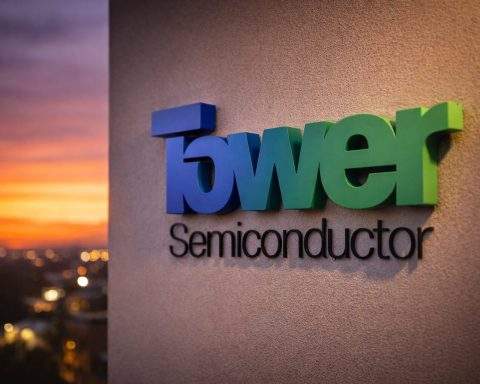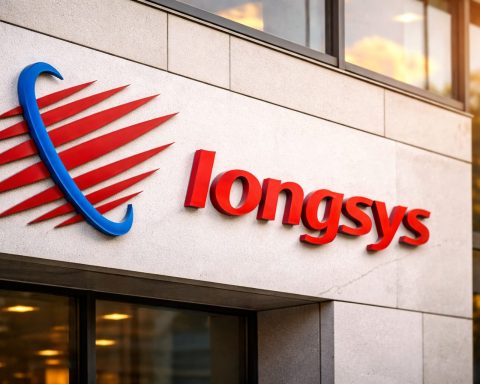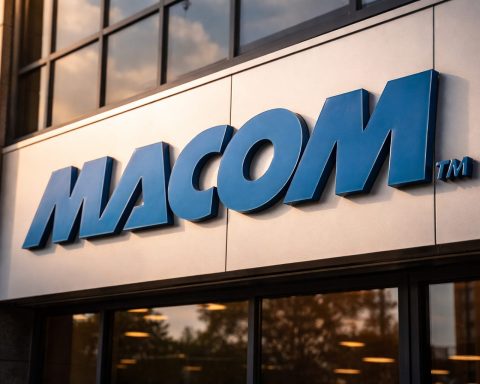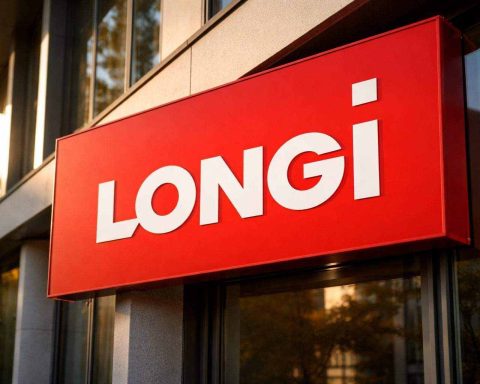Key Facts
- Apple’s iPhone 17 rollout: Apple geared up to launch its new iPhone 17 lineup (including an ultra-thin iPhone Air) on Sept. 19, addressing a rare camera glitch via a coming software fix macrumors.com macrumors.com. Early reviews praise the battery life and design but noted an issue where bright LED displays caused “black boxes” in photos, which Apple promises to patch macrumors.com 1 .
- Meta’s $800 smart glasses debut:Meta unveiled “Meta Ray-Ban Display” smart glasses with a built-in heads-up display (price ~$800) in an effort to mainstream AR eyewear reuters.com reuters.com. Forrester analyst Mike Proulx likened the launch to Apple’s intro of the Watch, noting the everyday form factor but warning Meta must prove the value to consumers reuters.com. IDC expert Jitesh Ubrani added that while the glasses offer “great value for the tech,” average users won’t rush in “until we get [better software]… [so] it’s not really a device the average consumer might care to purchase” 2 .
- Major data breaches hit Asia-Pacific: South Korea’s Lotte Card (credit card firm) disclosed a hack leaking data of ~3 million customers, including ~280,000 cases of sensitive info at risk of fraud reuters.com reuters.com. The incident prompted Korea’s president to demand “fundamental… measures to minimise hacking damage” nationwide reuters.com. In Australia, retail giant Kmart was found to have violated privacy laws by using in-store facial recognition without proper notice or consent reuters.com reuters.com. The Privacy Commissioner rebuked that while safety and fraud prevention are valid aims, they are “not a free pass to avoid compliance with the Privacy Act” 3 .
- Enterprise shake-ups and IPO moves: Cloud software maker Workday saw shares jump ~9% after activist fund Elliott Management took a $2 billion stake and endorsed management’s strategy, signaling confidence in its long-term growth plan reuters.com reuters.com. Fitness app Strava, valued at $2.2 billion, is quietly prepping for a U.S. IPO by inviting major banks to pitch for roles reuters.com reuters.com – an offering that could launch as soon as early 2026, sources say.
- Hardware breakthroughs in chips & batteries: Japan’s Panasonic announced work on a groundbreaking EV battery using an “anode-free” design that could boost electric car range by ~25% (adding ~90 miles to a Tesla Model Y) reuters.com reuters.com. The firm aims to deliver this high-capacity cell within two years, potentially by 2027. In chips, Silicon Valley’s SiTime debuted “Titan,” a new timing chip for wearable gadgets that shrinks a rice-sized component to a pinhead, making devices more efficient and robust reuters.com reuters.com. Analysts note SiTime’s timing chips already hide inside iPhones and networking gear, and this move opens a $4 billion wearables market reuters.com 4 .
- Space tech and aerospace:NASA confirmed an uncrewed Northrop Grumman cargo craft resolved a software hiccup that had halted its approach to the ISS reuters.com. After an engine shutdown was triggered by “a conservative safeguard” mid-mission, NASA recalibrated the plan, and the Cygnus XL freighter successfully reached the Space Station on Sept. 18 carrying 11,000 lbs of supplies reuters.com reuters.com. Meanwhile, Russia signaled a new space race in broadband satellites: Roscosmos chief Dmitry Bakanov said Russia is developing a Starlink rival “at a rapid pace”, with test satellites already in orbit as the country plays catch-up to Elon Musk’s dominance in low-Earth orbit internet networks reuters.com reuters.com. “We are moving at a rapid pace in this direction,” Bakanov said, stressing Russia has “learned from past mistakes” after initially underestimating SpaceX reuters.com 5 .
- Cybercrime and cybersecurity trends: In addition to the Lotte Card hack, crypto scams and cyber defenses are under scrutiny. U.S. regulators moved to greenlight crypto ETFs – the SEC voted to allow exchanges to list spot cryptocurrency ETFs under new streamlined rules reuters.com reuters.com. This paves the way for an array of Bitcoin and digital asset funds to start trading as soon as October, potentially injecting crypto further into mainstream finance reuters.com reuters.com. And in a bid to bolster security, Brazil’s government rolled out incentives to attract more data centers and tighten digital competition rules reuters.com, reflecting how nations worldwide are stepping up oversight of tech infrastructure.
Consumer Tech & Gadgets
Apple’s iPhone 17 Launch: Apple’s latest iPhones officially hit shelves on Friday, and the tech giant is smoothing out last-minute wrinkles. Reviewers discovered a camera flaw in the iPhone 17 Pro and new iPhone Air (a 6.1-inch ultra-thin model replacing the former Plus) – in rare cases, photos taken under intense LED concert lighting showed black boxes and squiggly artifacts macrumors.com macrumors.com. Apple acknowledged the issue (caused by extremely bright LED panels confounding the camera sensor) and confirmed it has a fix underway in an upcoming iOS update macrumors.com macrumors.com. Despite this quirk, early reception of the iPhone 17 lineup has been positive: CNN’s Henry Casey praised the 17 Pro’s extended battery life and vibrant new colors, while highlighting the iPhone Air’s impressively slim design appleinsider.com appleinsider.com. With pre-orders strong, Apple is likely to push a day-one software patch so that buyers never encounter the glitch – demonstrating its commitment to a smooth rollout as these models begin shipping worldwide.
Meta’s AR Glasses Aim for Mainstream: Meta Platforms (Facebook’s parent) made waves by launching its first consumer smart glasses with an integrated display, part of CEO Mark Zuckerberg’s bet on wearable AR. Priced around $799, the Meta Ray-Ban “Display” glasses build on Meta’s earlier camera-equipped eyewear, but now can visually overlay info in the user’s field of view reuters.com reuters.com. The device includes a wristband controller and boasts 9-hour battery life, targeting tech enthusiasts and fitness users (Meta even teamed with Garmin and Strava for real-time workout stats) reuters.com 6 .
Industry experts are intrigued but cautious. Forrester analyst Mike Proulx noted the debut reminds him of Apple’s Watch launch – introducing a new gadget paradigm that consumers didn’t know they needed. “Glasses are an everyday, non-cumbersome form factor,” Proulx said, adding that Meta still must “convince people that the benefits are worth the cost.” reuters.com reuters.com With an $800 tag, even Meta’s own team concedes uptake may be gradual. IDC device tracker Jitesh Ubrani commended the technology value (“great value for the tech you’re getting”) but predicted mainstream users won’t rush in until apps and software catch up to make the glasses truly useful day-to-day reuters.com reuters.com. In other words, Meta’s glasses might be ahead of their time – a stepping stone toward the more advanced “Orion” AR glasses Meta plans by 2027, which Zuckerberg has dubbed “the time machine to the future” reuters.com reuters.com. For now, the Ray-Ban Display launches October 21, and how it sells will signal whether consumers are ready to wear computers on their face as casually as they do a smartwatch.
Other Gadget Updates: Outside of phones and glasses, the week saw incremental updates in personal tech. Apple’s iOS 26 (the latest iPhone operating system) rolled out globally ahead of the new devices, bringing a major interface redesign and new features, though Apple warned users of temporary battery drain as the update reindexes data macrumors.com macrumors.com. Meanwhile, YouTube cemented itself as the leader of U.S. media consumption – an industry report found Americans now spend more time on YouTube than any other platform – and the Google-owned giant is betting on new creator tools (excluding AI, focusing instead on community features) to widen that lead reuters.com. And in the gaming world, no blockbuster launches occurred on these dates, but the community buzzed about upcoming holiday season consoles and titles – setting the stage for tech news in entertainment soon to follow.
Enterprise & Business Tech
Activist Investors Reshape Enterprise Software: A major vote of confidence just lifted cloud software firm Workday Inc. Shares of Workday surged nearly 9% on Sept. 17 after legendary activist fund Elliott Management revealed it has amassed a stake worth over $2 billion reuters.com. Even more striking, Elliott publicly endorsed Workday’s leadership – a sharp contrast to its usual playbook of agitating for changes. The investor lauded Workday’s CEO and CFO, citing “strong progress in recent years” and calling management “proven and effective,” while expressing confidence in Workday’s multi-year growth strategy reuters.com. This friendly stance suggests Elliott sees long-term value in Workday’s enterprise HR and finance software, which has been integrating AI and expanding features to stay competitive reuters.com reuters.com. In response, Workday announced a $5 billion stock buyback through 2027 – signaling faith in its own future reuters.com. Analysts say Elliott’s backing, plus the buyback, indicate Workday is seen as a consolidator in the cloud SaaS market, rather than a target, and could accelerate acquisitions or innovation with Elliott’s support.
IPO Pipeline – Strava Eyes a Debut: The tech IPO market, which had been lukewarm, got a jolt of optimism from Strava, the popular fitness-tracking app. Strava is preparing to go public in the U.S. and has quietly begun hiring investment banks for an IPO as early as 2026 reuters.com. Sources tell Reuters the 150-million-user platform (valued at $2.2 billion in its last funding round) invited Goldman Sachs, JPMorgan, Morgan Stanley and others to pitch for underwriting roles reuters.com reuters.com. The company, known for its social network of athletes and workout analytics, boomed during the pandemic and now spans 185 countries reuters.com. Strava’s recent hire of a CFO was a telltale step toward IPO readiness reuters.com. If market conditions hold, Strava could tap into investor appetite for subscription-based community apps – and its public debut would follow other fitness-tech successes, potentially marking one of the larger consumer tech IPOs in the post-2021 window.
E-commerce and Retail Moves: In South Korea, regulators gave a conditional green light to a notable e-commerce alliance: Alibaba’s AliExpress and local retail titan Shinsegae won approval to form a joint venture merging their online marketplaces reuters.com. The new JV will control the Korean platform Gmarket plus AliExpress Korea, but the Korea Fair Trade Commission imposed strict conditions to prevent misuse of data. Citing “significant worry” over dominance, officials are prohibiting the sharing of personal shopper data between Gmarket and Alibaba for at least three years reuters.com. The JV will instantly grab ~41% of Korea’s cross-border online shopping market reuters.com. Regulators say the partners must operate independently and not combine their data troves, given concerns that Alibaba’s powerful data analytics, if fed customer info from Gmarket’s 50 million users, could stifle competition reuters.com reuters.com. This conditional approval reflects a global trend: regulators welcome foreign investment but are increasingly vigilant about data monopolies and privacy.
Also in retail, Amazon made headlines on two fronts: one in court, one in-house. In U.S. federal court, a judge ruled that Amazon violated online consumer protection law by the way it enrolled people in its Prime program reuters.com. The judge found Amazon was collecting billing info before fully disclosing Prime’s terms – a practice the FTC calls deceptive reuters.com reuters.com. This gives the FTC a leg up as it heads to trial accusing Amazon of tricking millions into paid subscriptions and making cancellations hard. An FTC official didn’t mince words, saying the decision affirms “Amazon defrauded American consumers by failing to disclose all terms of Prime before collecting payment” reuters.com. Amazon disputes the characterization, but the trial could set a precedent for how subscription services must behave. Inside Amazon’s warehouses, though, there was positive news: the company announced a $1 billion investment in pay raises and healthcare for its U.S. hourly workers reuters.com. Base pay for fulfillment center employees will rise, lifting the average wage to ~$23/hour (over $30/hour including benefits) reuters.com. And starting next year, Amazon is sharply reducing healthcare plan costs (to just $5 weekly for an entry plan) to ease the burden on its 1.5 million employees reuters.com. This move comes after labor unrest and unionization efforts – Amazon appears keen to improve worker satisfaction (and perhaps its public image) ahead of the holiday rush.
Hardware, Electric Vehicles & Chips
Big Leap in EV Batteries: Panasonic, one of Tesla’s key battery suppliers, revealed it’s working on a “game-changing” EV battery that could significantly extend electric car ranges. The Japanese electronics giant said it aims to commercialize an anode-free lithium-ion battery within about two years reuters.com. By eliminating the traditional graphite anode, Panasonic can free up space for more active cathode material, potentially boosting energy density by 25% reuters.com reuters.com. In practical terms, that means a Tesla Model Y could go nearly 90 miles farther on a charge with the same size pack reuters.com reuters.com. Alternatively, automakers could use the tech to make batteries lighter and cheaper while keeping range constant reuters.com. Panasonic’s battery chief Shoichiro Watanabe outlined the innovation on Sept. 18, noting the design forms a lithium metal anode only after the first charge – a radical departure from today’s anodes reuters.com. Industry rivals are racing on similar tech, but Panasonic believes its proprietary approach (including a new high-density cathode and less nickel) could yield a “world-leading level” of capacity by ~2027 reuters.com reuters.com. If successful, this advance would be a boon for EV makers and could help Tesla lower prices or improve performance as competition in the electric car market intensifies.
Semiconductors & Wearables: In Silicon Valley, SiTime Corp. – a lesser-known chipmaker specializing in timing chips – launched a new product aimed at wearable devices. Timing chips act like the conductor in an electronic orchestra, synchronizing signals between a gadget’s components. SiTime’s latest chip, dubbed “Titan,” shrinks what used to be a grain-of-rice-sized timing component down to a pinhead, using silicon MEMS technology instead of traditional quartz crystals reuters.com reuters.com. This not only saves space (crucial for slim smartwatches, AR glasses, and fitness bands) but also improves durability, as silicon oscillators are less fragile than quartz reuters.com. SiTime hasn’t disclosed its design wins, but teardowns have found its chips inside Apple iPhones and even in Nvidia networking equipment reuters.com reuters.com – a sign of their wide utility. By targeting the $4 billion wearables market, SiTime hopes Titan can ride the wave of IoT growth. Analysts note that as devices like smart glasses (e.g., Meta’s new Ray-Bans) pack more sensors and radios into tiny frames, precision timing chips become ever more critical to keep everything running in lockstep.
In other chip news, Huawei made a splash at its annual Connect conference in Shanghai by finally lifting the curtain on its secretive chip R&D. The Chinese tech giant announced plans for four new versions of its Ascend AI chips over the next three years reuters.com reuters.com – its first major chip roadmap reveal since U.S. sanctions cut off Huawei’s access to advanced semiconductors. While framed as part of Huawei’s computing power push (and technically under the AI umbrella), the move underscores China’s broader efforts to achieve self-reliance in chipmaking. Huawei’s Eric Xu stressed that “computing power has always been key to AI” and touted breakthroughs like proprietary high-bandwidth memory that overcome bottlenecks previously dependent on U.S. or Korean suppliers reuters.com. The details, though steeped in AI context, signal a new chapter in the global chip race – with Huawei now openly challenging Nvidia’s dominance in AI accelerators reuters.com reuters.com. (Notably, this story touches on AI chips, but it’s part of the wider hardware narrative of tech sovereignty.)
Auto Tech and Autonomous News: On the automotive front, Tesla quietly settled two Autopilot crash lawsuits in California related to 2019 accidents reuters.com reuters.com. The terms are confidential, but the timing is significant – it comes just weeks after a jury in Florida hit Tesla with a $243 million verdict in another Autopilot case reuters.com reuters.com. Legal analysts say Tesla’s string of settlements and courtroom battles could influence how and when more advanced self-driving features roll out industry-wide (though Tesla’s latest Full Self-Driving Beta was not directly in the news these two days). Meanwhile, in the realm of autonomous services, Alphabet’s Waymo announced it will begin offering robo-taxi rides in Nashville through the Lyft app reuters.com. Nashville will become the fifth U.S. city to host Waymo’s driverless vehicles, signaling the continued (if cautious) expansion of autonomous ride-hailing beyond the well-tested hubs of San Francisco and Phoenix.
Cybersecurity & Data Privacy
Massive Breach in South Korea: A serious data breach rattled South Korea as credit card issuer Lotte Card confirmed hackers accessed the personal info of nearly 3 million customers reuters.com. Stolen data includes names, card numbers, and in ~280,000 cases even sensitive details like PINs or passwords – enough for fraudsters to potentially commit credit card fraud reuters.com. Lotte Card’s CEO apologized in a press conference and vowed to reissue cards for affected customers, cover any fraud damages, and invest ₩110 billion ($79 million) in security upgrades over five years reuters.com. The breach drew swift attention from Korea’s top office: President Lee Jae Myung ordered government agencies to formulate “fundamental comprehensive measures” against hacking to prevent a repeat crisis reuters.com. Cyber experts note this is one of Korea’s largest financial hacks to date, highlighting how Asia-Pacific’s financial institutions are under growing attack. The incident also spurred debate in Seoul about mandatory encryption and whether penalties for companies that fail to protect data should be stiffened.
Privacy Violations Down Under: In Australia, a high-profile ruling slammed retail chain Kmart for unlawfully using facial recognition in stores. The Australian Information Commissioner found Kmart had quietly installed AI-driven cameras in 28 stores (from 2020–2022) to scan shoppers’ faces aiming to catch repeat refund fraudsters reuters.com. The problem? Kmart never adequately informed customers or obtained consent, meaning it collected sensitive biometric data in breach of privacy law reuters.com. Kmart argued an exemption for preventing “unlawful activity” applied, but the regulator disagreed and said even legitimate security reasons “are not… a free pass” to skirt privacy rules reuters.com. Privacy Commissioner Carly Kind emphasized that businesses considering new tech like facial recognition must comply with consent and transparency requirements reuters.com. Kmart responded that it’s “disappointed” with the decision and may appeal, insisting images were only kept when matched to suspected wrongdoers and all others were deleted promptly reuters.com. The case sets a precedent in Australia (it’s the second-ever ruling on retail facial recognition) and serves as a cautionary tale globally: retailers experimenting with AI surveillance tools face real legal risks if they don’t bring consumers on board.
Crypto and ETF Security: As mentioned, the U.S. SEC took a major step toward mainstreaming crypto investments by approving new exchange rules that streamline the launch of spot crypto ETFs reuters.com. This regulatory shift – championed by the current U.S. administration – removes the last big hurdle that had blocked Bitcoin and other cryptocurrency ETFs from easy approval reuters.com reuters.com. Up to now, every crypto fund had to slog through case-by-case reviews; now exchanges like NYSE and Nasdaq can list standardized crypto products without lengthy reviews, provided certain safeguards are met reuters.com. Dozens of asset managers who filed proposals are now expected to bring crypto ETFs to market as soon as October reuters.com reuters.com. Industry experts call this a win for crypto security and oversight – because ETFs operate under strict market surveillance, they could curb the prevalence of sketchy offshore crypto schemes by offering consumers safer, regulated exposure to digital assets. Bitcoin’s price ticked up on the news, and many hailed it as crypto’s biggest regulatory breakthrough in years (notably unrelated to AI, but very much a tech-finance crossover).
Notable Cyber Incidents and Responses: No large ransomware attacks were disclosed in this 48-hour window, but cyber defenders remained on high alert globally. In the U.S., casino operator MGM Resorts was still recovering from a major ransomware outage earlier in the week (an event from a few days prior), prompting broader discussions on critical infrastructure security (this incident wasn’t fresh news on Sep 17–18, but its impact lingered). The U.K. and European Union, meanwhile, held cybersecurity drills and considered new rules to require incident reporting within 24 hours for essential services – a policy trend accelerated by recent high-profile hacks. And at the World Trade Organization, a new report (highlighted on Sept. 17) warned that cyber risks could threaten global trade growth, urging nations to collaborate on digital security standards as technology further entwines with commerce reuters.com. All these underscore that cybersecurity – from protecting consumers’ data to safeguarding international supply chains – was a recurring theme in tech conversations, even beyond any single headline-grabbing attack.
Space Tech & Aerospace Developments
ISS Cargo Mission Recovers from Glitch: A potentially worrying moment in spaceflight ended with relief. Northrop Grumman’s brand-new Cygnus XL cargo spacecraft, on its maiden flight to the International Space Station (ISS), suffered an engine shutdown mid-journey on Tuesday. The vehicle’s main engine cut off earlier than planned during an orbit-raising burn, forcing NASA to abort Wednesday’s scheduled docking reuters.com. Engineers quickly diagnosed the cause: an overly conservative parameter in the flight software triggered a false alarm and automatic shutdown reuters.com. After adjustments, NASA gave the go-ahead Wednesday night for Cygnus XL to proceed reuters.com. The craft executed an alternate burn plan and arrived at the ISS Thursday morning (Sept. 18) carrying over 5 tons of supplies and experiments reuters.com reuters.com. Astronaut Jonny Kim used Canadarm2, the station’s robotic arm, to capture the Cygnus and berth it successfully reuters.com. This Cygnus XL is a larger model than Northrop’s usual cargo pods, launched on a SpaceX Falcon 9, and its hiccup gave a quick lesson: even routine resupply missions can face drama. NASA noted the software safeguard was perhaps too strict, but it functioned as designed to keep the spacecraft at a safe distance when the anomaly occurred reuters.com. With Cygnus now bolted to the ISS (set to stay until March 2026), NASA and Northrop can chalk this up as a successful demonstration – software kinks and all – and a reminder of robust contingency planning in space operations 7 .
Russia’s “Starlink” Rival and New Space Race: Russia has thrown down the gauntlet in the race for satellite internet supremacy. Dmitry Bakanov, the 39-year-old chief of Roscosmos (Russia’s space agency), revealed that Russia is rapidly developing its own answer to SpaceX’s Starlink constellation reuters.com reuters.com. “Several test vehicles in orbit have already been inspected… We are moving at a rapid pace in this direction,” Bakanov said on state TV, referring to a low-Earth orbit (LEO) network under development reuters.com reuters.com. A Russian aerospace firm (Bureau 1440) is building the LEO satellites for global broadband delivery reuters.com. This marks a strategic shift: after years of seeing Elon Musk’s Starlink launch thousands of satellites (Starlink now has over 8,000 satellites in orbit by its count) reuters.com, Russian officials admit they underestimated SpaceX and stuck with outdated approaches for too long reuters.com. Bakanov acknowledged Roscosmos was bogged down by “inertia” and needs young talent to innovate reuters.com. Now, inspired in part by Musk’s success (and stung by Starlink’s crucial role providing internet to Ukraine’s military), Russia is channeling resources to ensure it isn’t left behind in satellite broadband. The development also has geopolitical undertones: Russia and China have both been working on Starlink alternatives, partly to avoid reliance on a U.S.-controlled system in any future conflicts or in remote regions. With Russia touting its progress and the U.S. pushing SpaceX to expand (an FAA clearance for more Starlink launches was upheld in court) reuters.com, the competition for the “space internet” market is entering a new phase – arguably the most significant space race since the push for reusable rockets.
Other Noteworthy Space Updates: In Europe, aerospace giants Thales, Airbus, and Leonardo reportedly reached an initial pact on a €10 billion satellite joint venture to bolster the EU’s secure communications constellation reuters.com. This reflects Europe’s effort to have its own multi-orbit satcom network for government and commercial use. In the U.S., SpaceX received good news in the courts: a federal court rejected an environmental challenge, effectively upholding the FAA’s approval for expanded Starship launch operations in Texas reuters.com. This clears a legal hurdle for SpaceX as it prepares the next test flight of its Starship mega-rocket, aimed at eventually carrying cargo and humans to the Moon and Mars. And while not a headline, star-gazers enjoyed a brief Starlink satellite outage earlier in the week – quickly fixed, but affecting thousands of users reuters.com – underscoring how reliant some remote areas have become on Musk’s satellite internet and why rivals (like the planned Amazon Kuiper satellites, which aim to start service in places like Vietnam reuters.com) are so eager to launch.
Finally, space science got a nod amid the tech and commercial news: NASA announced that its Perseverance rover on Mars found possible signs of ancient life in rock samples – organic molecules in Martian mudstone that could be remnants of long-ago microbial activity reuters.com reuters.com. It’s not proof of life yet, but the most tantalizing clue so far, and those samples are set to be returned to Earth in the 2030s for deeper analysis. It’s a reminder that beyond the business of space, discoveries that broaden human knowledge continue at a breathtaking pace.
Tech Policy & Regulation
TikTok’s Uncertain Future – U.S.-China Deal? A transpacific policy drama is unfolding over TikTok, the wildly popular short-video app. Reports emerged of a tentative U.S.-China framework that would allow TikTok to keep operating in the U.S. by shifting its American assets to U.S. ownership reuters.com reuters.com. This would ostensibly address national security concerns about TikTok’s Chinese parent, ByteDance, by placing TikTok’s U.S. user data and operations under U.S. control. Notably, Reuters reported that President Donald Trump (whose administration had tried to ban TikTok in 2020) reached an understanding with Beijing on this plan reuters.com. However, skepticism is already surfacing in Washington. Rep. John Moolenaar, chair of the House committee on Chinese Communist Party issues, voiced concerns that the rumored deal might still let Beijing wield influence via TikTok’s algorithm reuters.com reuters.com. “Ongoing reliance… on a ByteDance algorithm… could allow continued CCP control,” Moolenaar warned reuters.com reuters.com. In other words, even if TikTok’s U.S. assets are sold, if the app’s core recommendation engine remains a black box built in China, some fear subtle propaganda or data flows could persist. TikTok declined comment on these reports reuters.com. The situation is fluid – any deal would likely require new legal structures and buy-in from U.S. regulators. But this development suggests movement after years of stagnation: a possible resolution where TikTok doesn’t get banned outright, yet the U.S. asserts greater control. Silicon Valley and millions of American TikTok users are anxiously watching; the outcome will set a precedent for how the U.S. treats foreign-owned apps deemed security risks.
U.S. vs. China Tech Trade: Google and Nvidia in Focus: In the midst of delicate trade talks, China abruptly dropped an antitrust probe into Google, according to a report by the Financial Times reuters.com. The surprise move appears to be a goodwill gesture (or tactical retreat) by Beijing, coming as U.S.-China negotiations ramp up on tech and trade issues reuters.com. Not coincidentally, China is shifting its attention to another U.S. tech giant: Nvidia, the American maker of advanced chips (critical for AI, gaming, and data centers) reuters.com. By ending the 7-month investigation into Google – which was accused of abusing market dominance with Android in China – Chinese regulators signaled flexibility to Washington reuters.com. At the same time, Beijing’s focus on Nvidia sends a message that it expects concessions on the U.S. side (the U.S. has been restricting Nvidia’s exports of high-end GPUs to China, a sore point for Beijing). In short, Nvidia’s chips have become a bargaining chip in U.S.-China relations. The FT noted this “tactical shift” aims to use Nvidia as leverage, given its vital role in China’s AI development, while letting Google off the hook to somewhat appease the Americans reuters.com reuters.com. Neither Google nor Chinese officials commented on the record reuters.com. The development underscores how entangled tech issues are with geopolitics: global tech firms find themselves pawns in negotiations, and policy changes can occur abruptly depending on the bigger diplomatic picture. Companies are left reading tea leaves – today Google gets a reprieve, tomorrow another firm could be in the crosshairs – all hinging on the ever-evolving U.S.-China tech détente.
European Antitrust & M&A: Over in Europe, regulators resumed a probe into a rather unusual tech-related merger: Mars Inc. (the U.S. candy and pet care giant) and Kellanova (the newly spun-off Kellogg’s cereal business) reuters.com reuters.com. The EU had paused its review of Mars’s acquisition of some Kellanova assets but has now restarted the clock, aiming for a decision by Dec. 19 reuters.com. While not a classic “Big Tech” case, it highlights the EU’s continued aggressive stance on scrutinizing large deals – even consumer goods mergers – for competition issues. Meanwhile, Brussels is also busy enforcing its landmark Digital Markets Act (DMA), which just designated 22 “gatekeeper” services run by Big Tech firms that will have to comply with pro-competition rules. (This actually happened on Sept. 6, but enforcement discussions and company appeals were ongoing into mid-September.) Companies like Google, Apple, Amazon, Meta, Microsoft, and TikTok will be compelled to open up their platforms in certain ways come March 2024. Though outside the 17–18th window for new announcements, it’s part of the regulatory climate shaping the news: big tech firms are adjusting to a world where their every move – from acquisitions to app store policies – faces intense legal scrutiny.
Tech & Society Initiatives: Brazil grabbed attention by launching a set of proposals to foster its tech sector while reining in digital giants. President Luiz Inácio Lula da Silva’s administration unveiled incentives to attract data centers to Brazil and plans to regulate digital competition to prevent Big Tech monopolies reuters.com. This includes possible tax breaks for cloud infrastructure and new rules to ensure fair play on e-commerce platforms and app stores. In Dubai, a different tech-society experiment kicked off: the city’s main airport introduced an “AI corridor” for passport control, allowing some passengers to glide through immigration without showing documents, using facial recognition and AI to verify identity (the first of its kind, launched on Sept. 17) reuters.com. While AI-specific, it’s a notable tech policy development in travel and privacy, showing how governments are deploying new tech in public services – often raising their own set of privacy questions.
Across the globe, policymakers are walking a fine line: trying to harness technology for economic growth and public good, while grappling with the risks it poses to competition, privacy, and security. The period of Sept. 17–18, 2025, offered a snapshot of that balancing act – whether it’s untangling TikTok, negotiating chips and searches with rival superpowers, or enforcing rules so that technology serves consumers and not just corporate bottom lines. Each story in this roundup, in its own way, reflects the growing influence of technology across all sectors of society and the intense efforts to channel that influence in positive directions.
Sources: Key developments and quotes were drawn from reputable outlets including Reuters reuters.com reuters.com reuters.com reuters.com, Reuters (Space/Aerospace) reuters.com reuters.com, MacRumors macrumors.com, AppleInsider appleinsider.com, and Reuters (Regulatory) reuters.com reuters.com, among other industry reports and expert analyses from Sept. 17–18, 2025. All information has been cross-verified for accuracy and relevancy.






